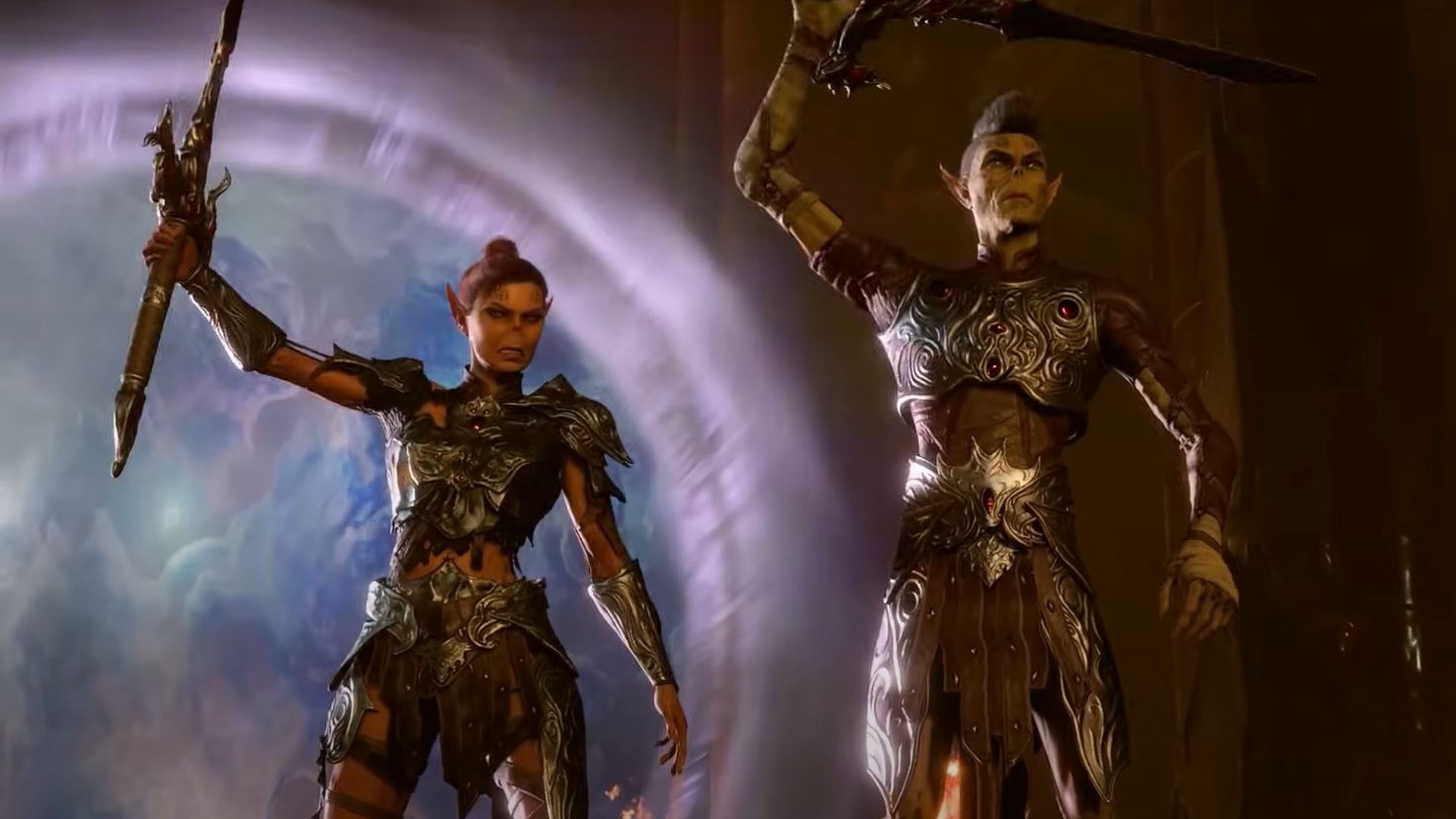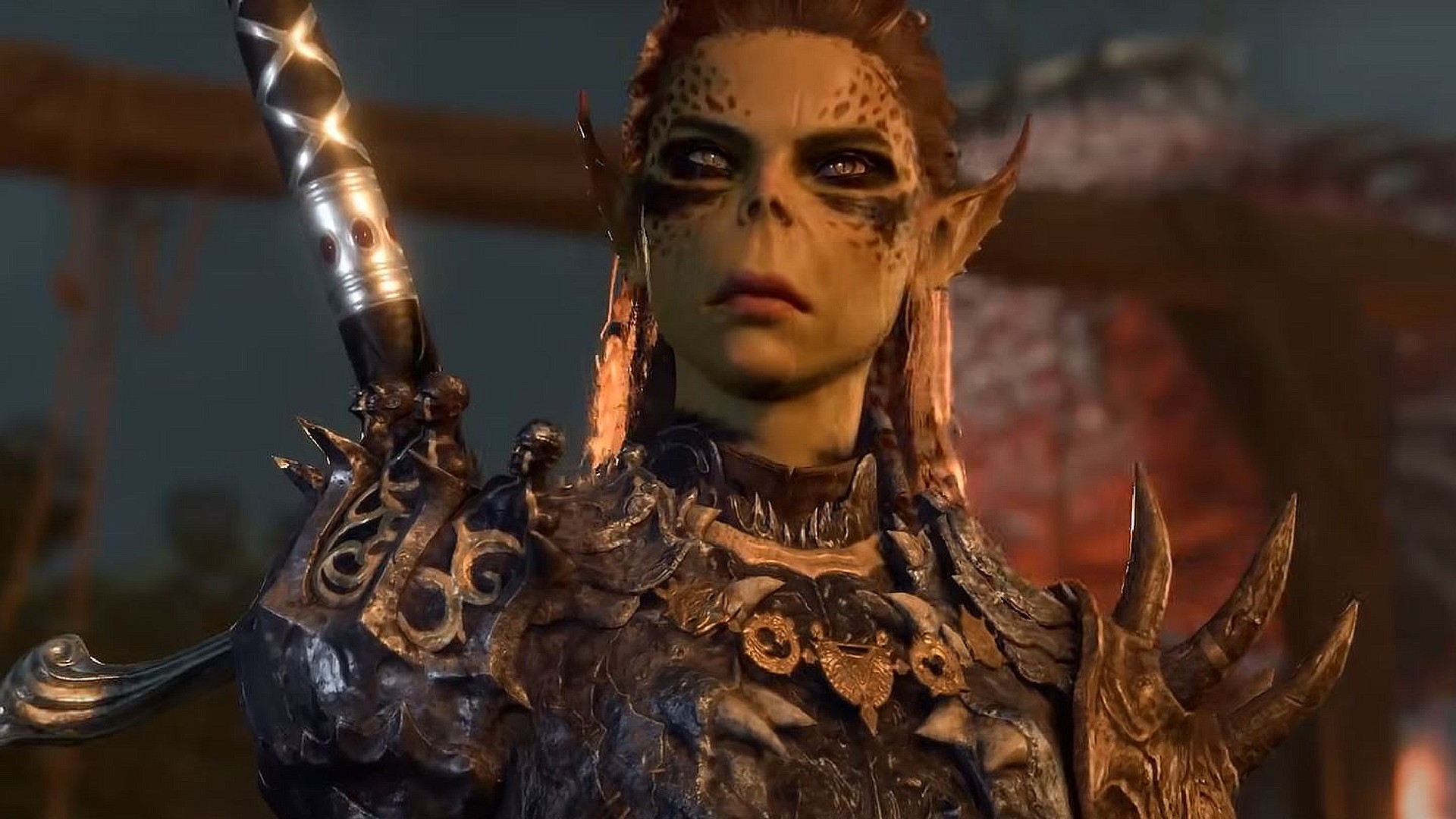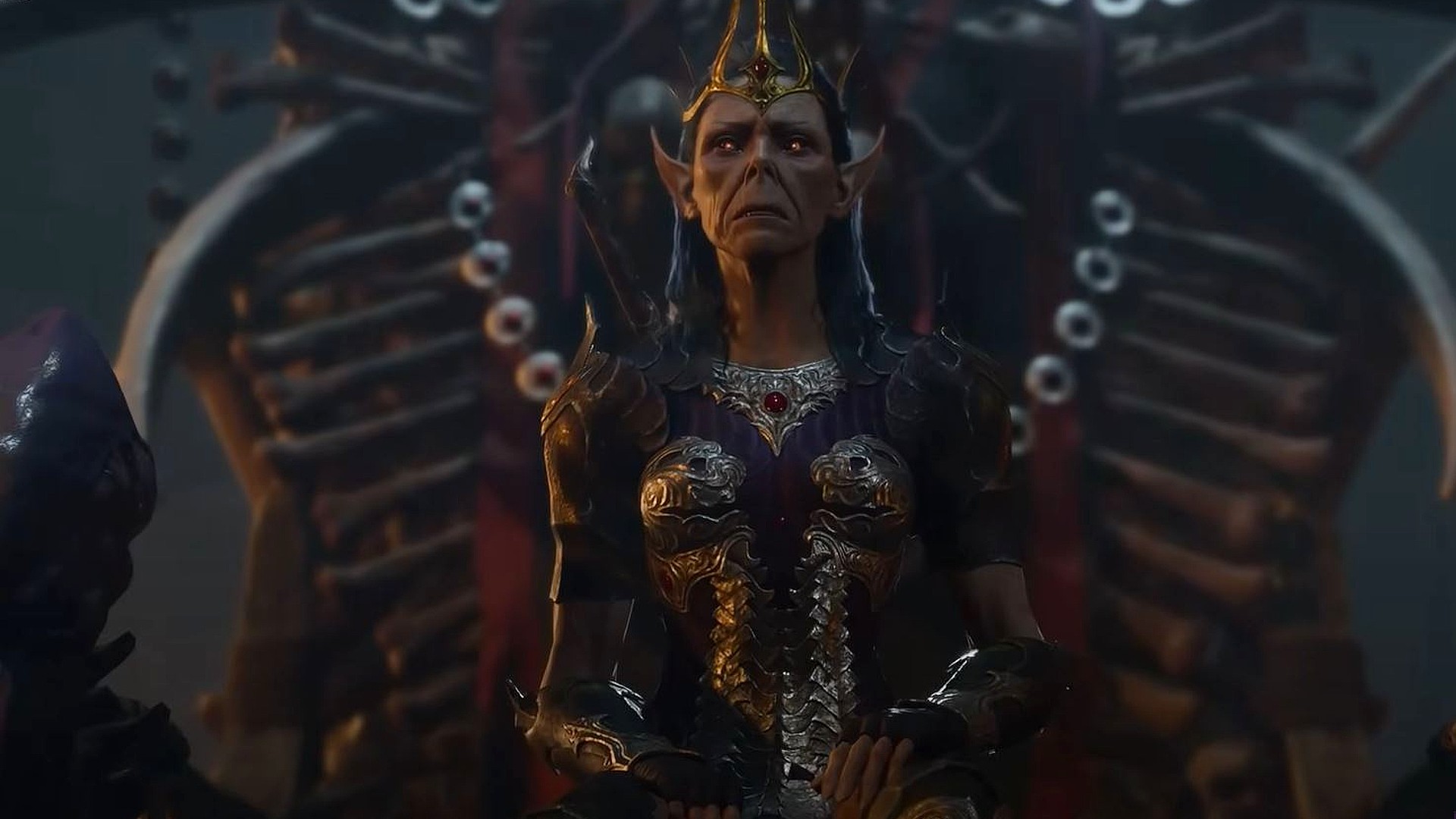Lae'zel's new "evil" ending in Baldur's Gate 3 isn't actually evil – it's her best possible outcome

"Hail, Queen Vlaakith – the last of Her name." Chills race down my spine the moment I hear Lae'zel utter these words in Baldur's Gate 3. Not only does it represent the ultimate moment of revenge for the githyanki warrior, these words invoke a paradigm shift for her entire people.
The Baldur's Gate 3 evil endings are a highlight of Patch 7, and Lae'zel's is by far my favorite. Is she potentially trading up one tyrant queen for another? By the sounds of it, yes. But does wresting power from Vlaakith represent the best possible outcome for an enraged, empowered Lae'zel who wishes to forge her own path, ending a lifetime of servitude to an unjust ruler? Definitely. Don't worry – I have the receipts.
A "good" githyanki


I never found Lae'zel in Baldur's Gate 3 and it turned me into a villain
Racing through a playthrough just to see Lae'zel's new evil ending is not the best decision I've made in my career, but given all the atrocities I committed as the BG3 Dark Urge, it's not far off. It was, however, worth it to see Lae'zel finally come into her own, on her own terms, as the usurper of Vlaakith and god-regent of her people.
It comes down to the fact that her so-called evil ending doesn't differ too strongly from unromanced Lae'zel's "good" ending. Either outcome sees her leading the fight against Vlaakith herself, whether or not Orpheus is in the picture. Whether she does so in the name of freeing her people – and opening up a power vacuum in the process – or with full intention of leading them into her own capable hands, Vlaakith's claim to the astral plane is challenged. Who's the bad guy here, anyway?
The stunning script writing in this new "evil" ending makes a fantastically dramatic point of this, as Amelia Tyler's narration delineates the flimsy boundary between good and evil in the eyes of the player. "A good githyanki knows when the battle is won," the voiceover booms, as Lae'zel makes the decision to rise up as god-regent of the githyanki. "But she knows, too, when the battlefield has simply changed. A good githyanki knows her enemy, but she knows, too, that a weapon should never be cast aside as long as it still might be used." Here is when Lae'zel turns to share a mighty, knowing glance with the Emperor and Orpheus. A silent agreement passes between them: they will bring down Vlaakith together. After all: "a good githyanki is loyal to her liege, but she knows, too, that some things must be done in her Prince's name – but not by his hand."

Lae'zel just wants what she's always wanted: retribution, revenge, and the honor of her people.
Lae'zel is not simply seizing the githyanki throne to unite them under her will alone. Her sense of duty still pervades, as does her respect for Orpheus as the one true son of Mother Gith, as she embarks on the ambush with him fighting at her side. Sure, she had to plant the seed in the minds of her fellow githyanki warriors with a little help from the Elder Brain. But does it really matter when her intentions are arguably the opposite of evil, and actually results in a more hardcore and powerful rendition of her "good" ending?
I'm not just making excuses for her. Looking at the options now available to an origin Lae'zel player upon dominating the Elder Brain rather than destroying it, her unique ending is objectively the far lesser of all evils. She appears to largely leave Baldur's Gate and Faerûn alone, banishing the illithid vessels from the skies as she takes to her red dragon steed. She doesn't command them all to butcher one another, nor for the flames of chaos to reign, nor for them to rebuild the city as a bastion of her glory. Lae'zel just wants what she's always wanted: retribution, revenge, and the honor of her people.
Weekly digests, tales from the communities you love, and more
And there you have it. In my mind, as one of the most morally-grey Baldur's Gate 3 party members on the roster, this new "evil" ending just makes the most sense for Lae'zel. If Gale gets to become a god and achieve his truest ambition, why can't she? As I watch the credits roll on a new dawn for githyanki, I can't help but feel a sense of satisfaction on her behalf. It's the ultimate display of how good and evil are subjective, ever-evolving markers that fail to encompass the grey areas in between – and if there's one thing Larian has proven time and time again, it's that there's more than one way to get your happily ever after.
There's plenty more adventure to be had in the best RPGs if you're looking to expand your horizons past Baldur's Gate.

Jasmine is a staff writer at GamesRadar+. Raised in Hong Kong and having graduated with an English Literature degree from Queen Mary, University of London in 2017, her passion for entertainment writing has taken her from reviewing underground concerts to blogging about the intersection between horror movies and browser games. Having made the career jump from TV broadcast operations to video games journalism during the pandemic, she cut her teeth as a freelance writer with TheGamer, Gamezo, and Tech Radar Gaming before accepting a full-time role here at GamesRadar. Whether Jasmine is researching the latest in gaming litigation for a news piece, writing how-to guides for The Sims 4, or extolling the necessity of a Resident Evil: CODE Veronica remake, you'll probably find her listening to metalcore at the same time.


